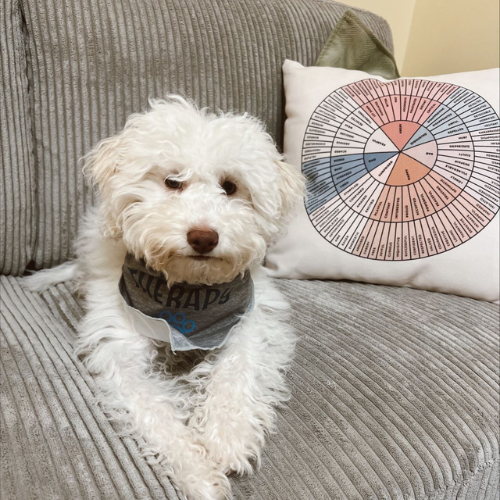Binge eating disorder (BED) is one of the most common eating disorders, affecting millions of people worldwide. Even so, it remains widely misunderstood and stigmatized by both the general public and even healthcare professionals, creating a profound sense of shame and guilt in people who struggle with it.
Many people with BED don’t seek treatment due to the mistaken belief that their eating habits are simply a lack of control. Others are overlooked by healthcare professionals who focus on weight rather than behaviors or feelings of distress. Since BED affects people of all sizes, people in larger bodies may be wrongly advised to lose weight, while those in smaller bodies may not be considered at risk for BED at all.
Binge eating disorder is not a lack of willpower or self-discipline. It’s a serious mental health disorder rooted in biology, genetics, cultural pressures, emotional distress and trauma. People who struggle with BED need specialized treatment and support that includes evidence-based therapies like cognitive behavioral therapy (CBT). Here, we’ll explain why CBT is a frontline treatment for BED and how it can help heal the psychological and emotional patterns that contribute to the disorder.
What is Binge Eating Disorder?
Binge eating disorder is characterized by recurrent episodes of binge eating, defined as eating large quantities of food very quickly and to the point of physical discomfort. During a binge, a person often feels like they’ve lost control or are unable to stop eating, even if they aren’t physically hungry. According to the DSM-5, bingeing episodes in BED occur at least once a week for at least three months.
Unlike other eating disorders, people with BED don’t regularly try to “undo” their binges through compensatory behaviors like self-induced vomiting, excessive exercise, laxative misuse, or extreme fasting. People with BED often binge in secret due to shame and embarrassment; after a binge, they may feel extreme guilt, disgust, or depression.
While many people with BED experience significant weight gain as a result of their illness, no eating disorder every person the same way. BED is diagnosed based on behaviors and emotional distress, not body size.
Why is BED so stigmatized?
BED is often considered the most stigmatized eating disorder because many — but not all — people with BED live in larger bodies. In Western societies, where systemic weight bias and the thin ideal infiltrate nearly every area of life, people with BED are regularly blamed for their illness or told to “just eat less.” Many people wrongly assume that BED is simply “overeating” or a result of laziness or lack of willpower. These misconceptions and biases are also present in the healthcare system, where symptoms of BED are often dismissed, overlooked, or misattributed, further silencing people struggling with this disorder.
It’s important to know that BED is not a lack of willpower, and it’s not a personal failure. It’s a serious mental health condition that deserves evidence-based care—and CBT is at the forefront of that treatment.
What Is Cognitive Behavioral Therapy (CBT)?
Cognitive Behavioral Therapy is a structured, short-term form of psychotherapy that helps individuals understand how thoughts, feelings, and behaviors are interconnected. In the context of binge eating disorder, CBT helps people identify the emotional triggers, negative beliefs, and automatic thoughts that contribute to binge episodes—and learn healthier, more adaptive ways to cope.
CBT typically includes:
- Recognizing and challenging distorted thoughts about food, weight, and self-worth
- Developing regular eating patterns and reducing restrictive behaviors
- Learning emotional regulation skills to cope with stress without turning to food
- Identifying triggers and building personalized coping strategies
- Building self-compassion and body acceptance
How CBT Helps Treat Binge Eating Disorder
CBT is considered the gold standard for treating BED and is recommended by organizations like the American Psychological Association and the National Eating Disorders Association (NEDA).
1. It Significantly Reduces Binge Episodes
Research consistently shows that CBT is highly effective in reducing binge frequency. A study published in the Archives of General Psychiatry found that over 79% of participants receiving CBT no longer met diagnostic criteria for BED by the end of treatment (Wilson et al., 2010).
This is because CBT addresses the root of binge eating—not just the behavior, but the underlying emotional patterns that drive it.
2. It Improves Long-Term Recovery
CBT not only helps reduce binge eating during treatment—it also supports sustained recovery. A randomized controlled trial published in Behavior Research and Therapy found that individuals who received CBT had significantly lower relapse rates than those who received other treatments or self-help approaches (Hilbert et al., 2012).
Even a year after treatment, most participants maintained their progress—a powerful reminder that CBT helps build lasting skills, not just temporary solutions.
3. It Improves Emotional Wellbeing
Binge eating is often fueled by emotional distress: anxiety, depression, low self-worth. CBT doesn’t just target the eating behavior; it helps heal the emotional pain underneath.
In a study published in Int. J. Eat. Disord., individuals who received CBT showed significant reductions in depression, body dissatisfaction, and emotional distress, alongside improvements in self-esteem and life satisfaction (Grilo et al., 2011).
CBT in Practice
CBT for binge eating disorder is usually delivered in weekly sessions for a set duration of time and can be done individually or in a group setting. Sessions are structured, goal-oriented, and focused on skill-building.
Therapists may assign homework between sessions to help clients practice what they’re learning in real-life situations.
Why CBT Works: Empowerment Over Shame
Many people with binge eating disorder struggle with intense guilt, isolation, and hopelessness. What makes CBT so effective is that it doesn’t shame the person; it empowers them.
CBT teaches people that:
- They are not broken—they’re reacting to pain in the only way they’ve known
- Binge eating is a learned pattern, and with practice, it can be unlearned
- Recovery is possible with the right tools and support
CBT creates a safe, nonjudgmental space where individuals can take back control of their health and well-being on their own terms.
Magnolia Creek is dually licensed to treat eating disorders and a multitude of co-occurring disorders. We tailor our treatment plans to individual needs and goals while empowering every client in our care to embrace recovery with resilience and independence.
Sources
- Wilson et al. (2010). Arch. Gen. Psychiatry, 67(8), 795–804.
- Hilbert et al. (2012). Behav. Res. Ther., 50(12), 706–713.
- Grilo et al. (2011). Int. J. Eat. Disord., 44(6), 457–462.















































